Learner-Centered Professional Learning Culture

Learner-Centered Professional Learning Culture maps the transitions and transformations from “School Centered” to “Learner-Centered.” As the professional learning culture deepens. schools transition to practices that ensure every learner is equipped with the knowledge, skills and dispositions to realize their potential. With an intentional focus on educational equity—defined as: Academic achievement Positive socio-cultural and linguistic identity… Read More ›
Personalized Learning Plans How-to Guide
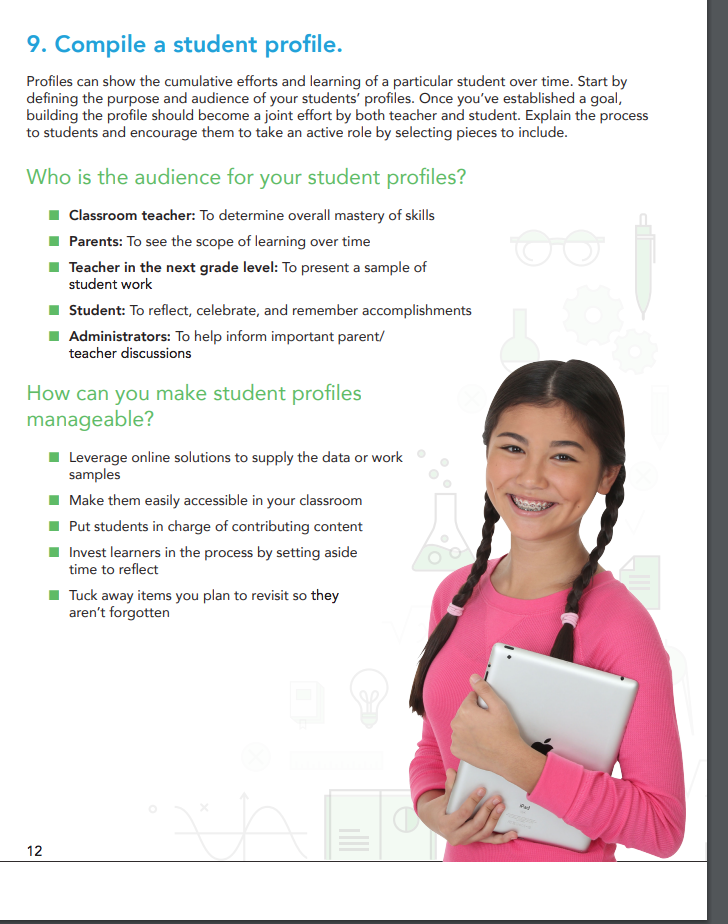
This free guide from Edmentum, a provider of curriculum and instructional management and assessment tools, demystifies personalized learning plans (PLPs). The guide outlines 10 actionable steps to define essential components of a personalized learning plan. This infographic provides a simple snapshot of the 10 steps. The guide also includes guiding questions and examples of effective… Read More ›
What Do You Mean When You Say “Student Agency”?
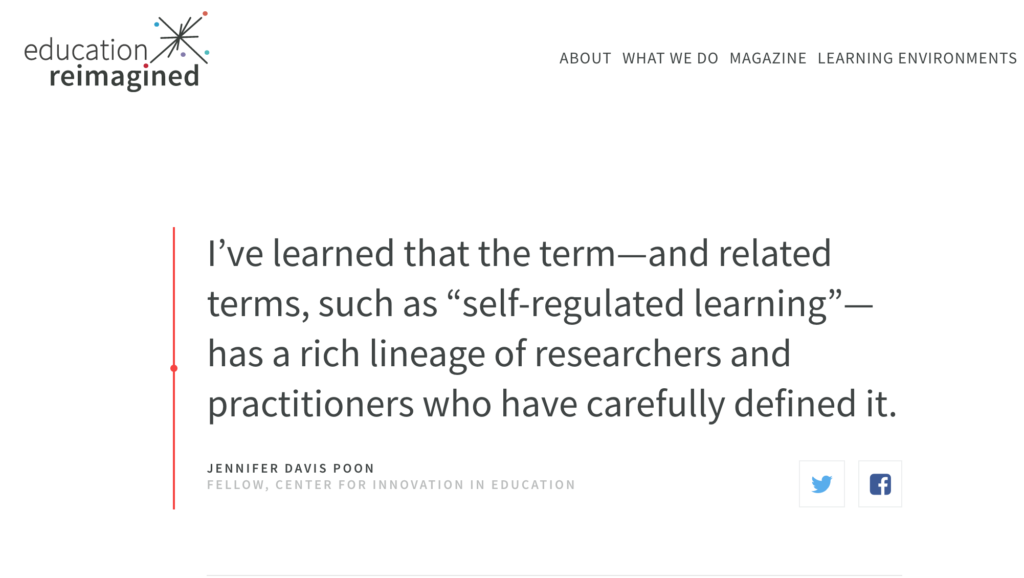
This resource entry includes two articles in a series on the concept of “student agency” and the impact of the ways the term in understood and applied on equity. This is a thought-provoking series that will interest many stakeholders, from educators to researchers. In the first article, What Do You Mean When You Say “Student Agency”?… Read More ›
Arriving at a Definition of Learning
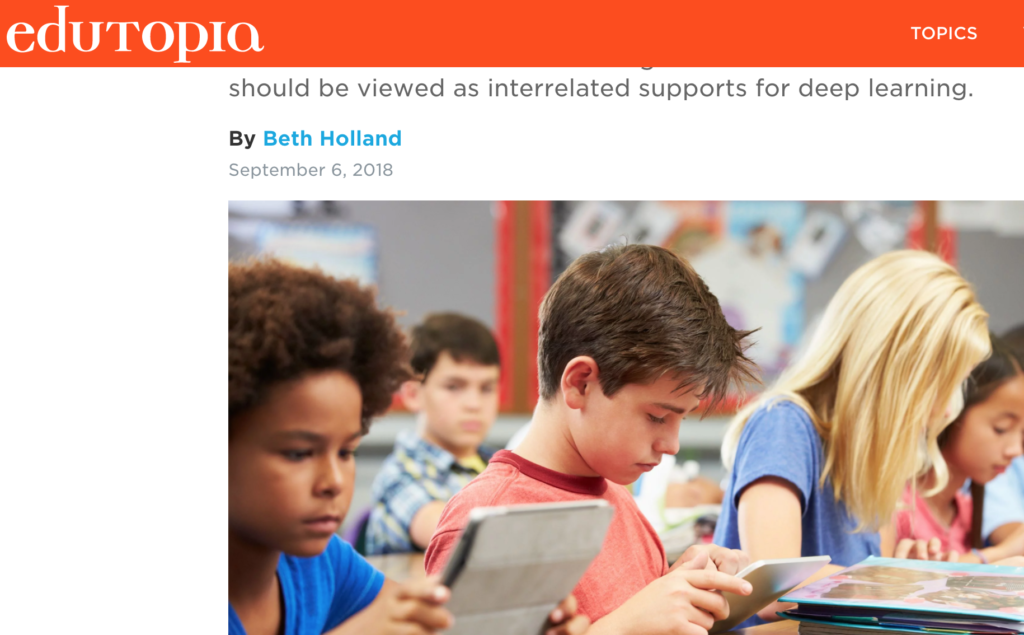
In this thoughtful article, the author, a veteran teacher, pushes the education community to define and deliver learning in a way that maximizes student agency. She defines learning as active, social, and meaningful. She encourages all stakeholders to see personalized and blended learning and differentiated instruction as interdependent components of great learning experiences that meet… Read More ›
Owning the Classroom Together
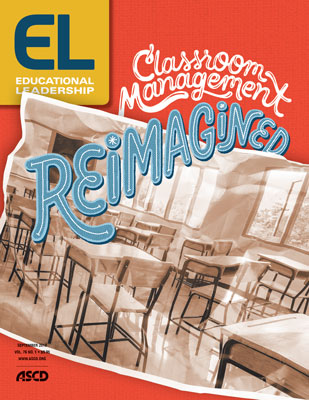
In this article from ASCD’s Educational Leadership Magazine a professor and veteran teacher, describes her efforts create a positive classroom culture to support learning. She started each year asking students the question: “Do you think we can create a classroom that works for every person here?” From this the class worked to create management routines for starting class,… Read More ›
LearnNext: Culture and Environment
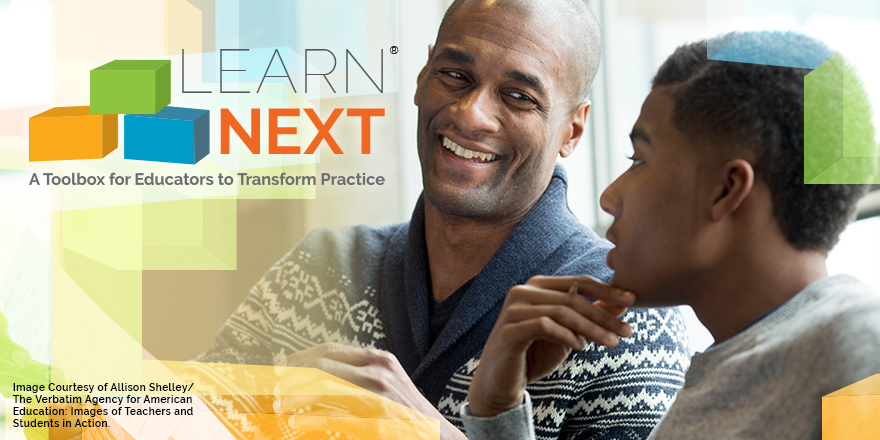
Culture and Environment is a course that examines the learning culture and environment needed to support the development of learner agency. Topics include motivation, resource access, digital divide, routines and practices, feedback, and tolerance. LearnNext’s Learner Agency courses were co-designed as a partnership between the Learner Agency experts at Jobs for the Future and 2Revolutions.… Read More ›
LearnNext: Pedagogical Approaches
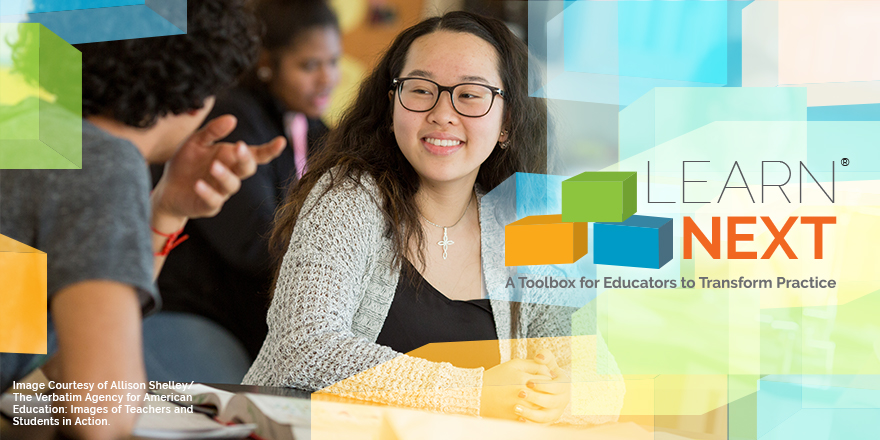
This course focuses on the changing role that educators play as they implement pedagogical approaches that promote learner agency. Specifically, participants will define learner-centered learning, differentiate between learner-centered and teacher-centered learning, assess their own learner/teacher-centered behaviors, explore case studies and pedagogical approaches that support learner agency, and select a new pedagogical practice to incorporate into the classroom.… Read More ›
A National Landscape Scan of Personalized Learning in K-12 Education in the United States
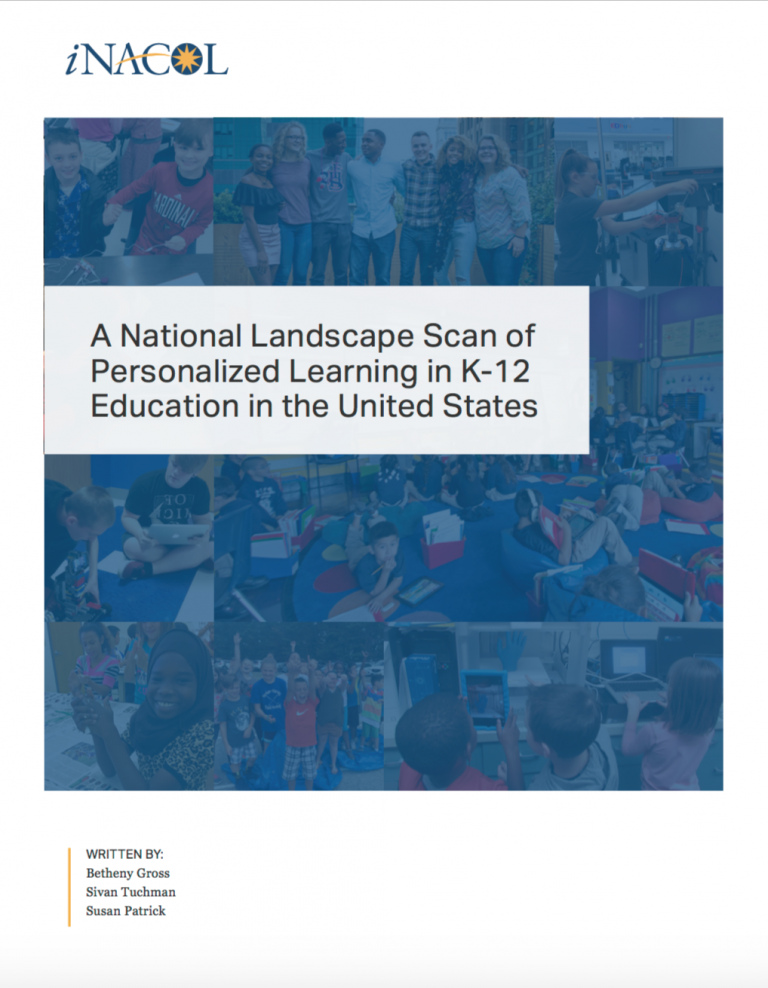
This publication provides findings from a national survey of teachers and students to underscore how, and to what extent, core elements of personalized learning are taking hold in K-12 schools and districts across the United States. iNACOL partnered with the Center on Reinventing Public Education (CRPE), NORC at the University of Chicago, and LEAP Innovations… Read More ›
What “Mastery-Based” Can Look Like in the Classroom
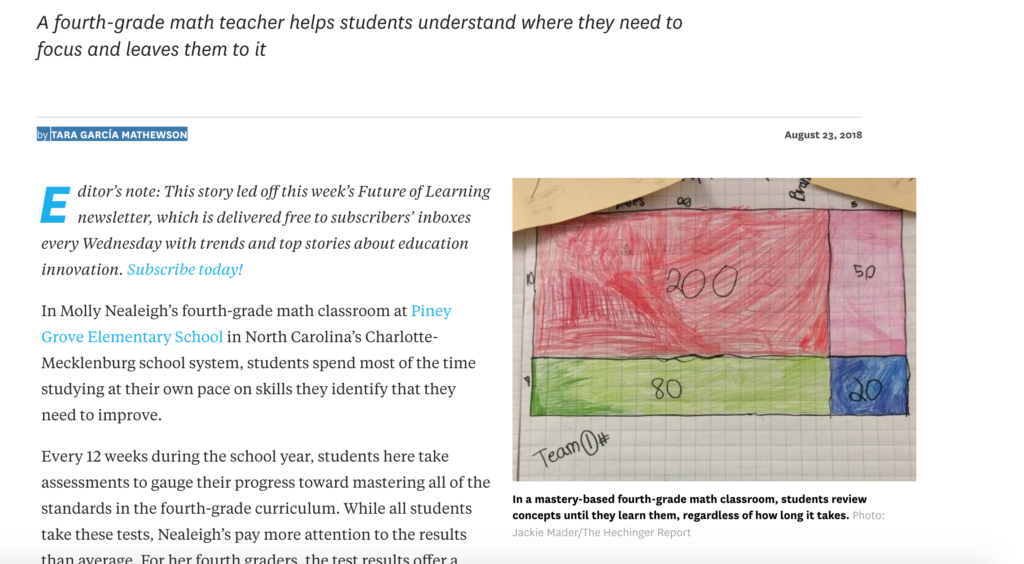
This article looks at a competency-based math classroom. It describes how Molly Nealeigh at Piney Grove Elementary School in North Carolina’s Charlotte-Mecklenburg school system uses a block period. She teaches new content for the first section and then lets students work individually, using online “pathways” she has designed. This allows students to progress at their… Read More ›
Improving Teaching With Expert Feedback—From Students
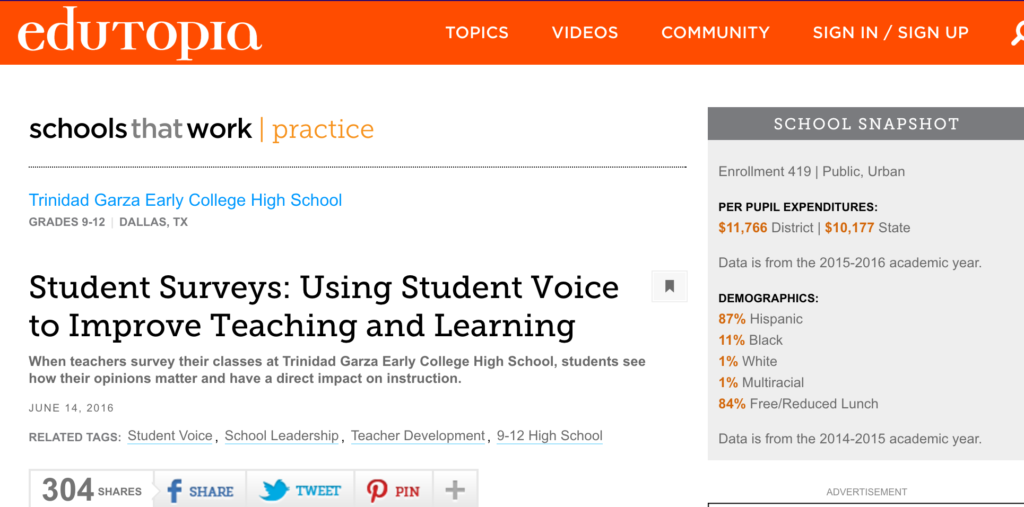
This article, part of the Schools That Work series by Edutopia, describes the approach a physics teacher at Trinidad Garza Early College High School took to improve his instruction. He found, through surveys, that letting students voice their opinions on how they learn best was the key to changing his teaching practices and improving students’ understanding.… Read More ›
Leveraging Digital Depth for Responsive Learning Environments
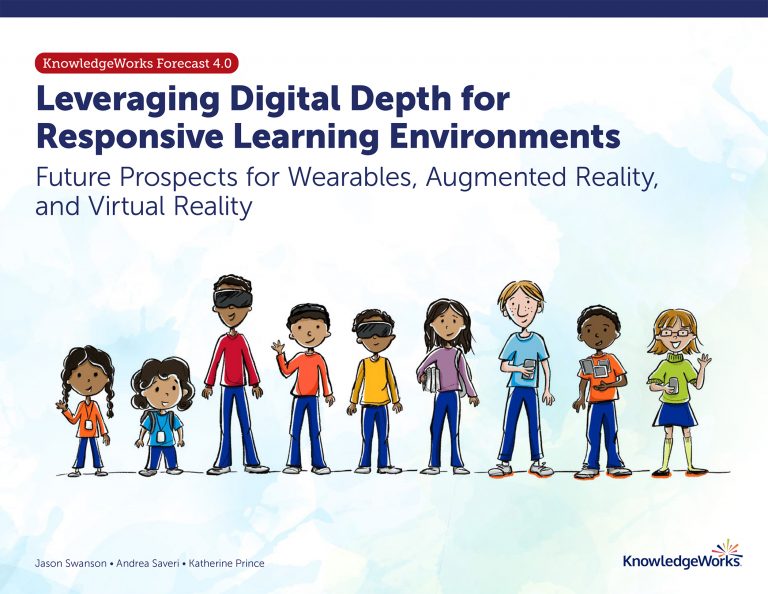
This paper explores the potential for wearables, augmented reality (AR) and virtual reality (VR) to help create more responsive learning environments that: Increase student engagement Enhance the personalization of learning Increase understanding of others’ experiences and perspectives Help develop greater levels of self-awareness Foster critical thinking Increase student agency The paper presents a frame for… Read More ›
360 Story Lab

The Digital Promise Global’s 360° Story Lab supports young people to produce 360° media on topics that affect their communities. Virtual Reality technology can be used to expose students to many new perspectives, experiences, and places. Students can also learn to be creators not just consumers of this technology. Through experiential storytelling and immersive technologies,… Read More ›